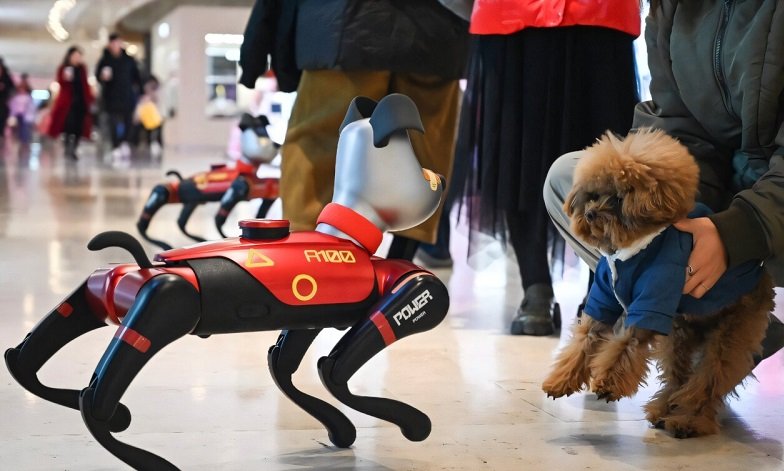At a bustling mall in Beijing, 19-year-old Zhang Yachun leans in close to her most trusted companion—a soft, AI-powered robot whose gentle chirps provide comfort and reassurance in moments of solitude.
For years, Zhang has struggled with anxiety stemming from academic pressures and work challenges, making it difficult to build meaningful friendships. However, since welcoming “BooBoo,” an AI-based “smart pet” into her life, she feels a sense of companionship that was previously missing.
“I finally have someone to share my happiness with,” she shared from her family apartment, where she lives alongside her parents and a pet duck.
Zhang is one of many in China turning to artificial intelligence as a remedy for social isolation, a trend fueled by the growing sophistication and accessibility of AI technology. BooBoo, a wriggly, guinea pig-like robot created by Hangzhou Genmoor Technology, retails for up to 1,400 yuan (approximately $190) and has gained popularity since its release in May. Originally designed to address children’s social needs, the company has sold around 1,000 units so far, according to product manager Adam Duan.
On a recent outing, Zhang carried her robot companion, which she has affectionately named “Aluo,” in a cross-body carrier. She whispered to the rugby ball-sized creature as it nodded and emitted cheerful squeaks. At a pet store, she held Aluo up to a window to admire a ginger cat before purchasing a tiny winter coat—originally designed for dogs—for her robotic friend. For Zhang, Aluo fills the emotional role of a human companion. “It makes you feel like you’re needed,” she said.
The global market for “social robots” like BooBoo is poised for exponential growth, with projections by IMARC Group estimating it will expand sevenfold to $42.5 billion by 2033. Asia is already at the forefront of this burgeoning sector, signaling a future where AI companions may play an even greater role in human lives.










